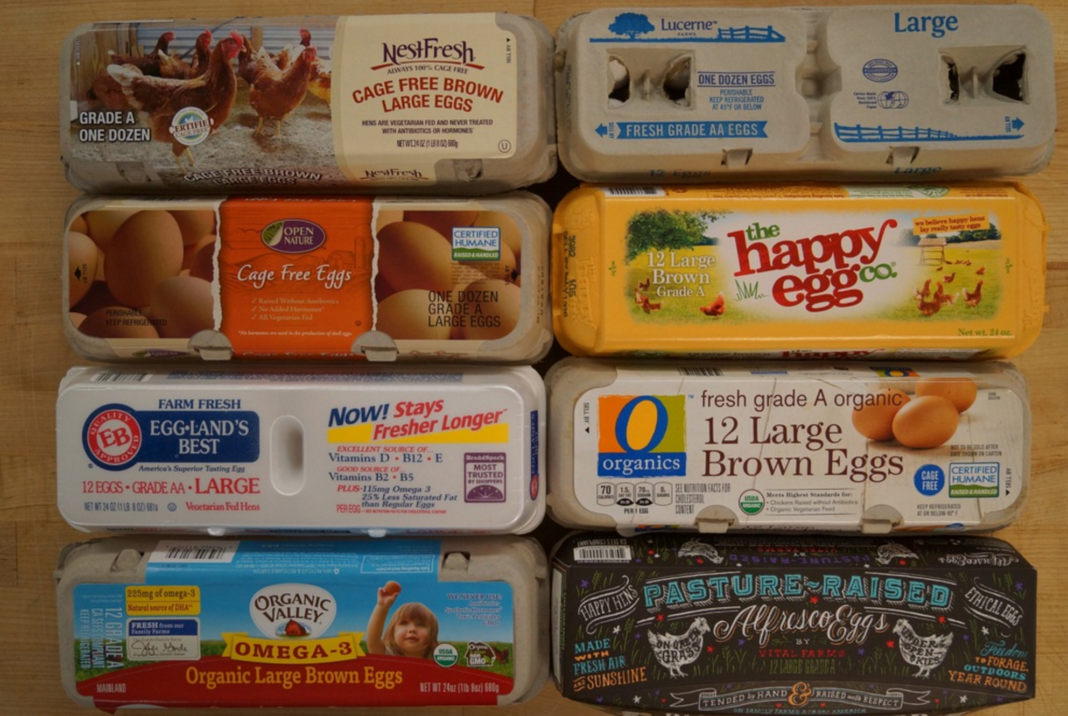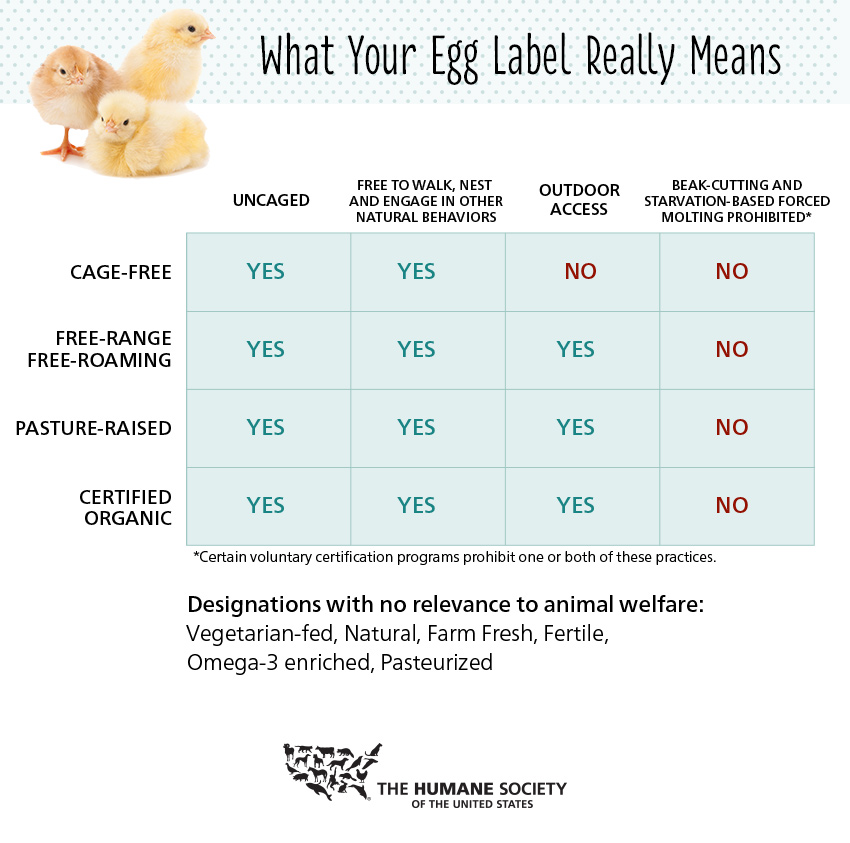Looking at the egg shelf of a local supermarket is like taking a business class in sales and marketing, the terms and pitches can be overwhelming. Organic, cage-free, free-range, Omega-3, pasture-raised, all natural, vegetarian fed; what are the differences between these terms versus what the average perceptions might be?
The “Story of Eggs” produced by PBS in 2013 is a great 6 minutes of Eggucation
“Cage-free” is perhaps the most misunderstood term in the poultry realm. The “Cage-Free” label simply means that the chickens are not kept in a battery cage. In case you aren’t familiar with the term “battery cage”, this is a cage that is about the size of an iPad in which a chicken cannot fully stand, spread its wings, or turn around. 90% of the eggs sold in the United States supermarkets and restaurants still come from chickens confined to battery cages. In 1999, the European Union voted to ban battery cages with a 12 year phase-out coming into effect in 2012.
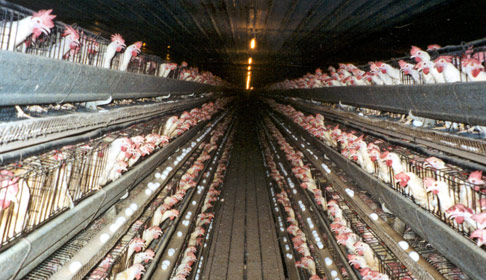
If an egg carton does not at least have the term “cage-free” the eggs in the carton came from a chicken unable to spread its wings, turn around, or have a humane life in any fair use of the term. So what does cage-free mean then? And how about all those other terms that have been popping up? Let’s get to it.
Cage Free
Cage-free chickens are not confined to battery cages. Period. The goodness stops there. Cage-free chickens do not see the outdoors and are generally kept in cramped warehouse conditions with no sunlight, little fresh air and no quality of life.
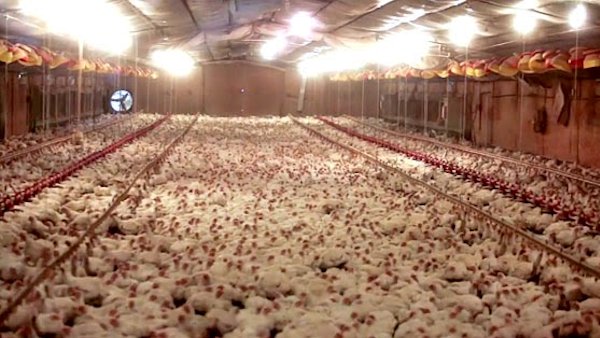
Free-Range
Free-range is an extension of cage-free. The chickens are not kept in cages and are given access to a limited outdoor area. Generally a door or ramp will lead to a small outdoor enclosure.
Certified Human Free-Range
Eggs that have a “Certified Human” free-range label come from chickens that are required to have six hours a day in at least two square feet of outdoor space.
Pasture-Raised
Pasture-raised is a movement that began when some farmers saw “free-range” as a marketing ploy that gave buyers a vision of chickens roaming around grassy fields. Eggs with the pasture-raised label are free to roam and are raised in what are by far the most humane conditions in the poultry industry.
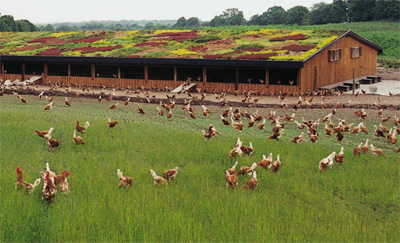
Organic
Eggs with the organic label are certified by the USDA as coming from chickens that have some exposure to the outdoors and are fed a diet grown without conventional pesticides and fertilizers.
Omega-3
Omega-3 is a label used for eggs that come from chickens fed a diet high in fish oil, algae, or flaxseed. A normal egg has about 30mg of Omega-3s, while an Omega-3 labeled egg has about 350mg. If you are really looking to get your Omega-3s you can skip the eggs and fish altogether and go with nuts and seeds that pack them in.
All Natural
Any egg can legally contain this term regardless of how the chickens are raised or fed.
Vegetarian Fed
Vegetarian fed chickens are fed no animal protein. While this may sound like a healthy term, in fact it should be kept in mind that in a natural setting chickens are omnivores and eat worms and bugs. According to the Humane Society a “Vegetarian Fed” label indicates that the chickens spend no time outside foraging for food.
Author’s note: A plant-based diet has been found to prevent and reverse nearly every major cause of death. For more information about plant-based diets visit nutritionfacts.org.


